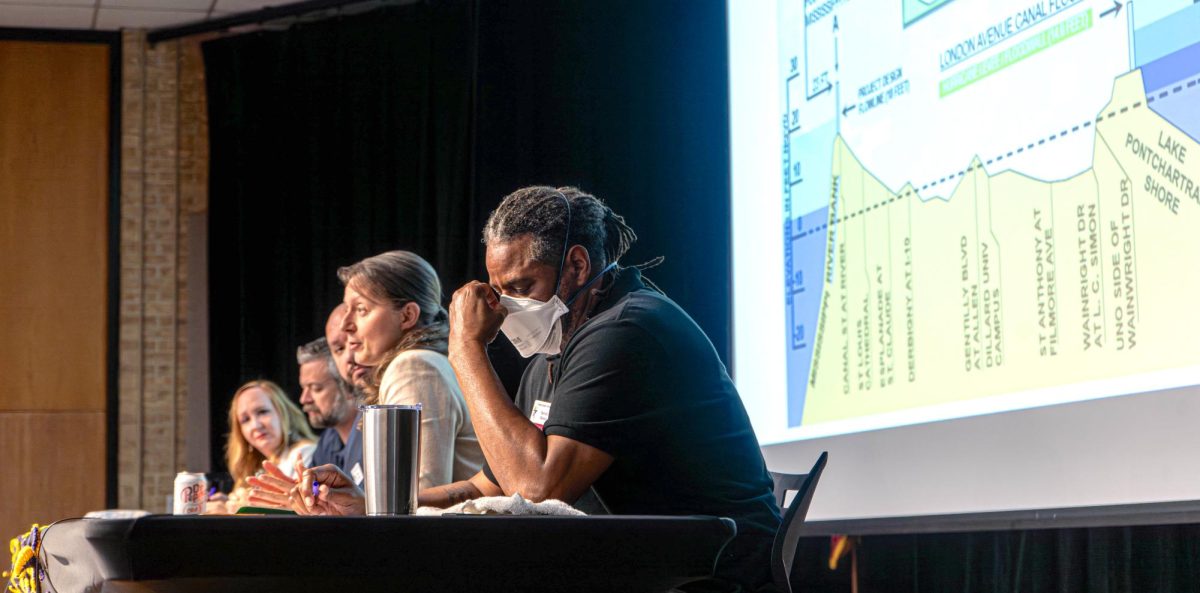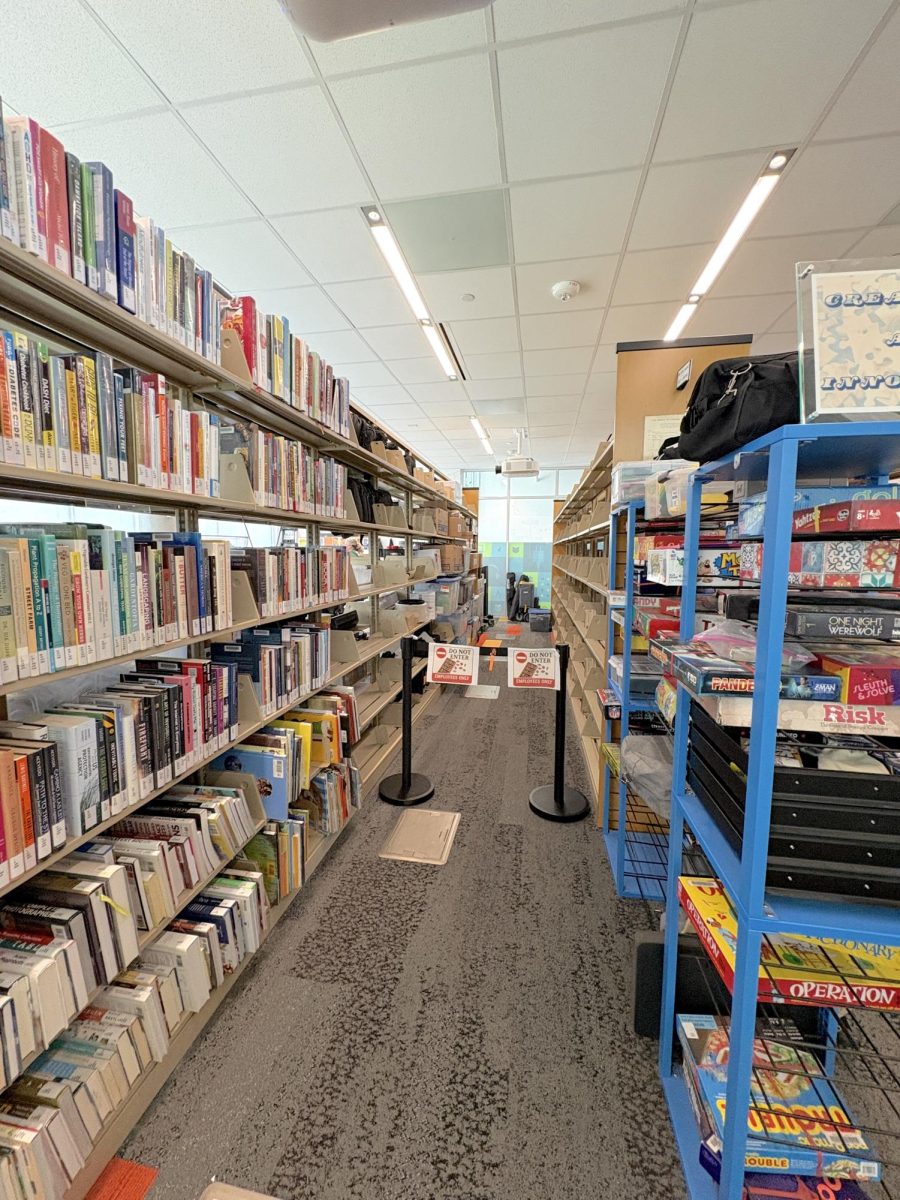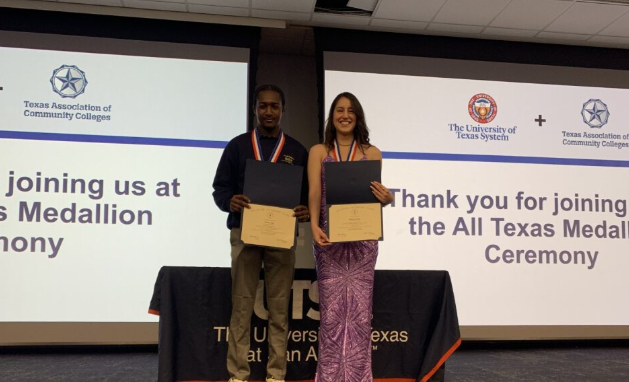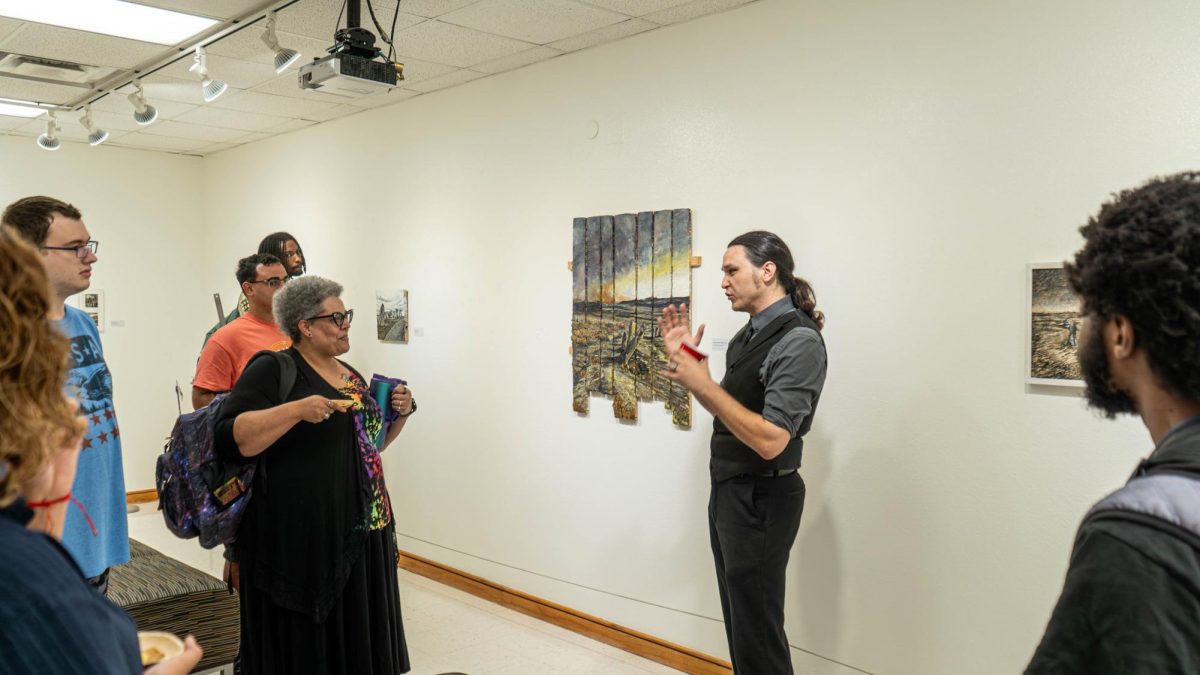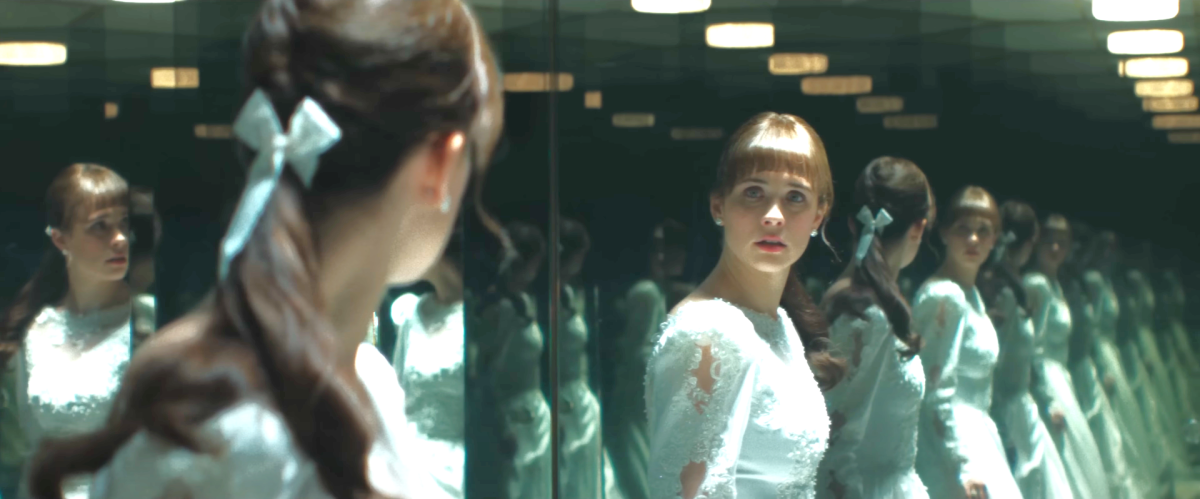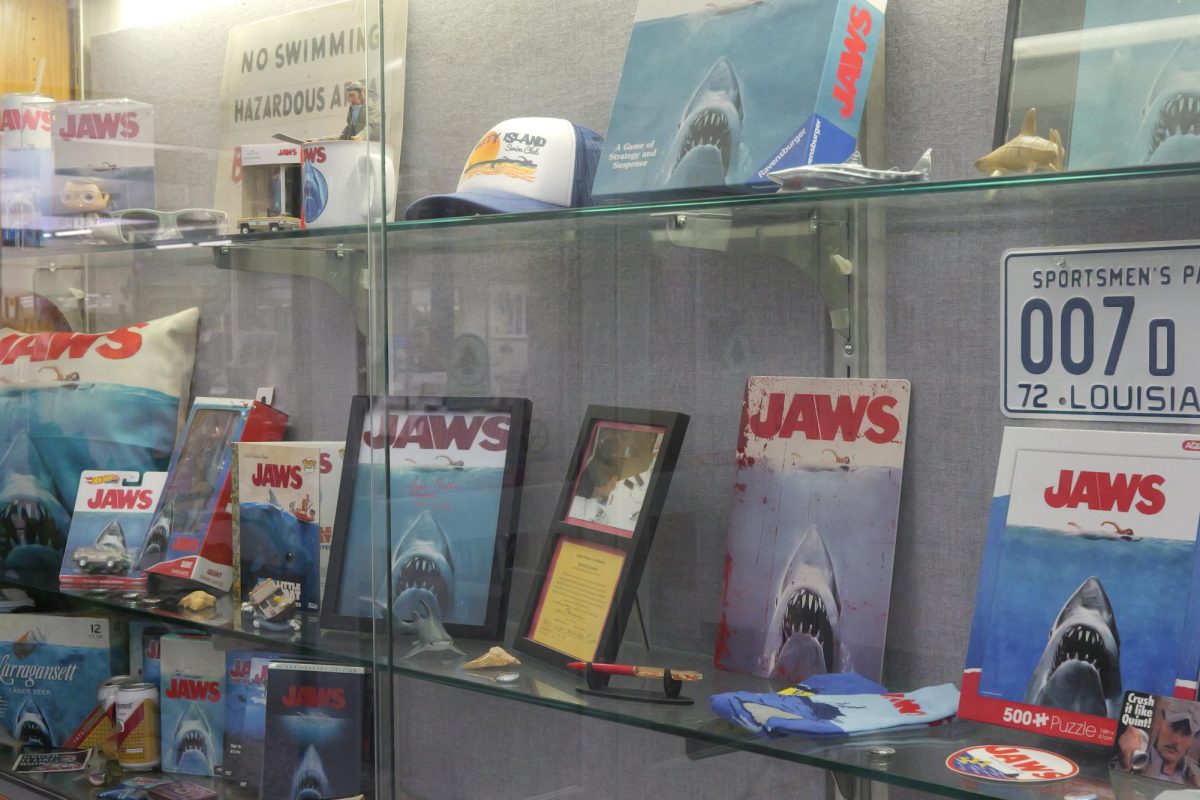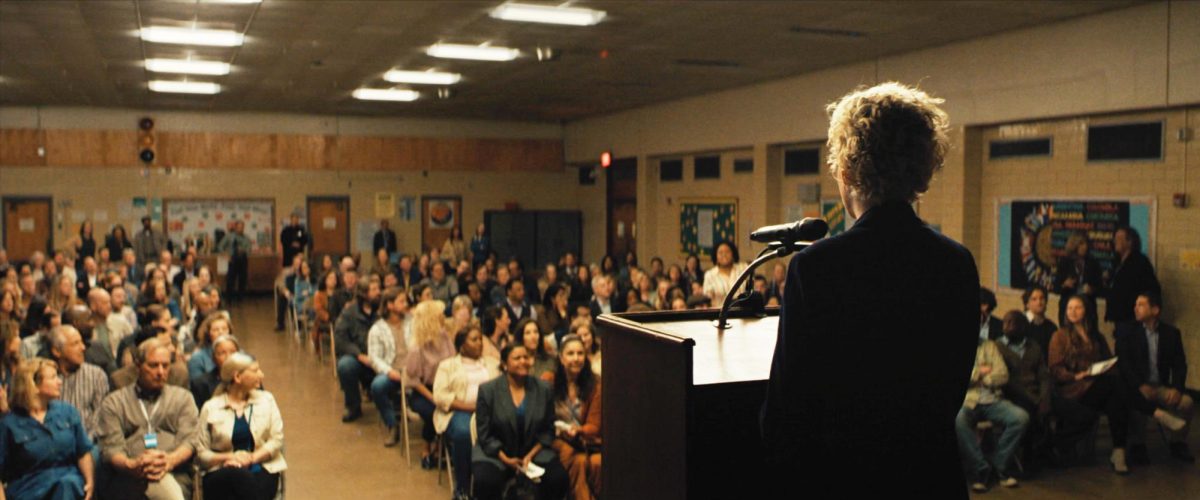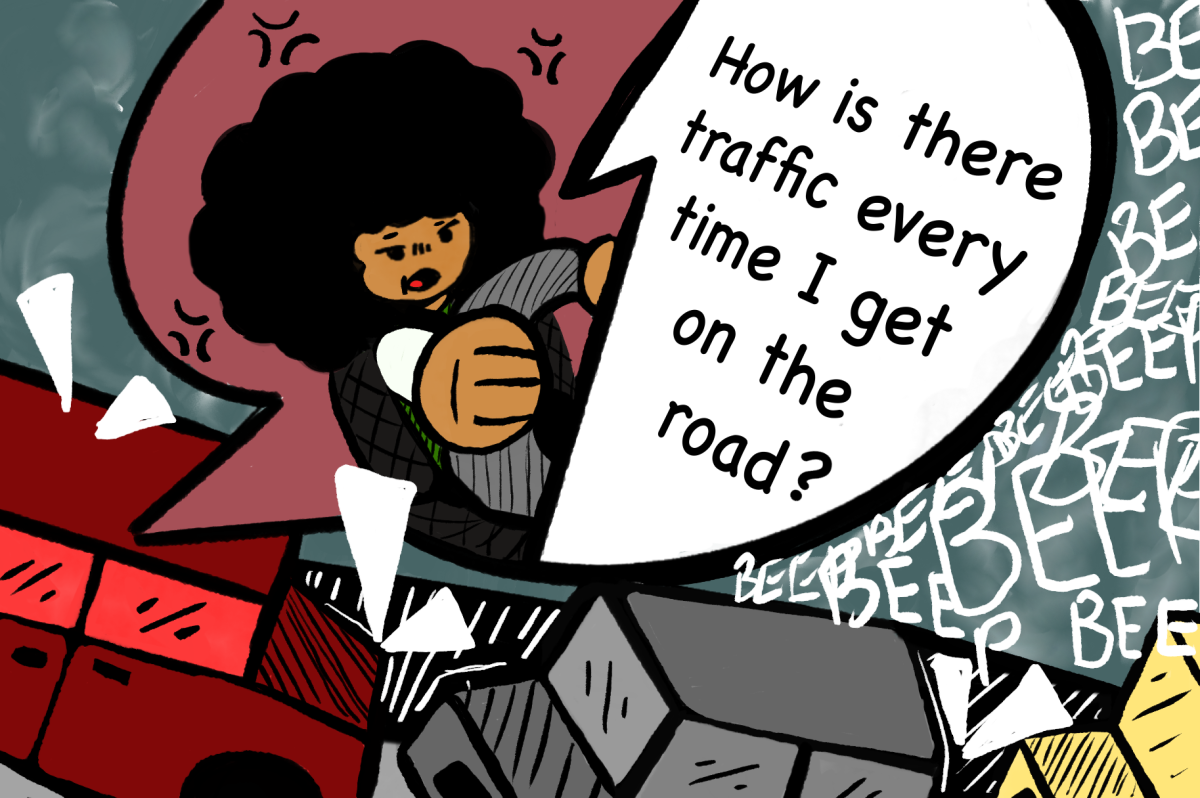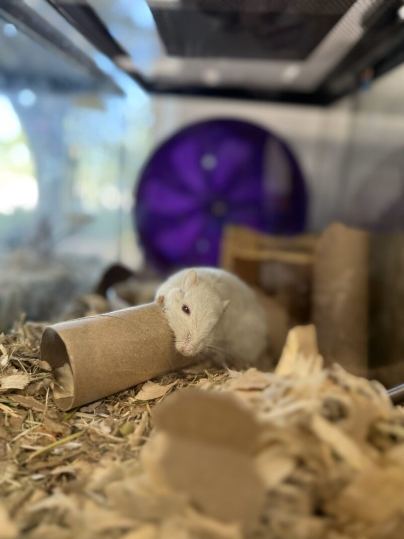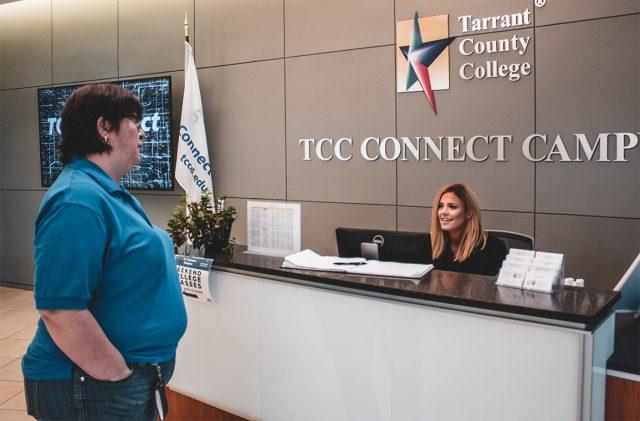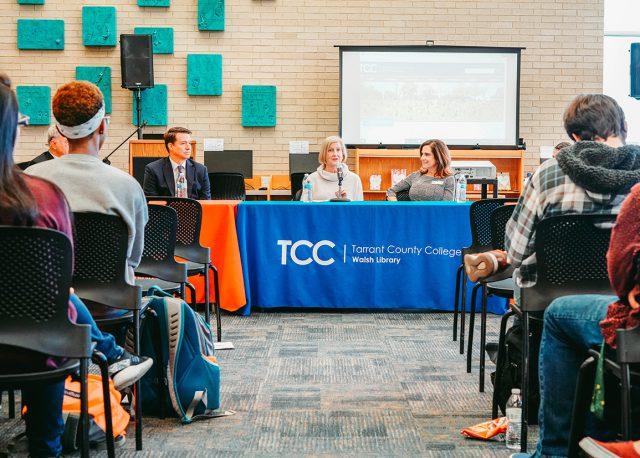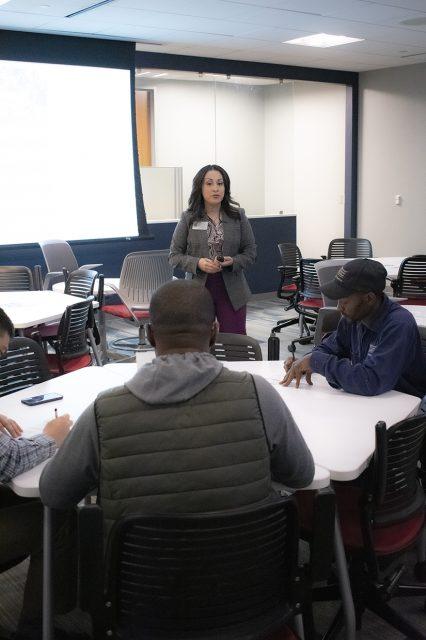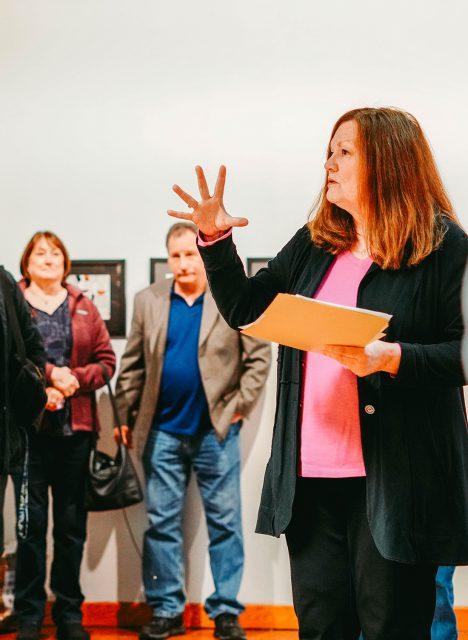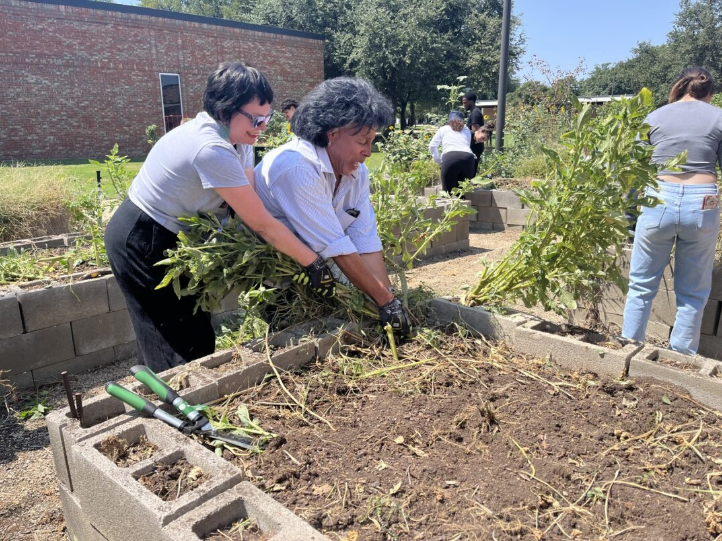| February 12, 2020 | Dang Le | managing editor |
|---|

While many students think of non-fiction as boring biographies, TR instructor Decha Cullen showed them they could narrate their perspectives through this genre during the Non-Fiction: Your Story Matters workshop on Feb. 4.
“Finding your voice as a writer is not like writing a masterpiece. You don’t talk like that,” Cullen said. “Write something that’s you and choose elements because they’re natural expressions of your character.”
From this event, Cullen hopes students will leave feeling more comfortable with the messiness that characterizes the beginning of the writing process and viewing revision as opportunities for continued growth of a piece.
She said the presentation will focus on helping students realize writing as a process that can be both enjoyable and expressive.
Cullen told students to be honest with themselves as to why each story matters when they write a memoir piece.
“You wanna work in the realm of maybe and perhaps, not everything is black and white,” she said. “It can make you more human and more relatable to humans.”
Cullen reminded students when writing about themselves, it’s OK to accept flaws because a writer should not be all good or bad.
During the event, she showed a clip of David Sedaris on the David Letterman Show, which earned laughter from the audience. From his stand-up, Cullen told students they should be careful when adding comedy elements as there is a fine line between making people laugh and making people feel uncomfortable.
“One of the good things is he’s making fun of himself rather than making fun of the readers,” she said. “If you write something that doesn’t make you smile or giggle, it will not make your readers do so.”
When reviewing all the stages of writing, Cullen compared them to human growth, starting from childhood when the writer is absorbing all the knowledge, to becoming an adult when they put everything together, then as a parent when the writer looks through the whole picture when revising their piece.
“It’s really hard sometimes to get rid of something, but you may have to do it, and the piece will be better,” she said.
TR student Jessica Brendza enjoyed all activities of the workshop as it lets her know more about her writing ability.
“I definitely like that she had given us prompts to choose from what we wanted to share, and let us use our own imagination,” she said.
The workshop attracted TR American Sign Language (ASL) instructor Peggy Cobb, who brought her students in during their class hour.
“We have a state test of English proficiency that they have to complete to take the performance test,” Cobb said. “We’re encouraging ASL students to write more.”
She also has her students sign-in during the workshop as part of their internship requirements.
“I hope they will learn to express themselves using academic English,” Cobb said. “Being able to not only write their thoughts but also feel free to go to the Writing Center.”
The workshop is the second part of the six-week learning series hosted by TR writing and learning center.
From now until Wednesday March 4, students can join in multiple workshops to become more confident in all aspects of tips and perspectives in writing every Tuesday 11 a.m. and Wednesday 2 p.m.

